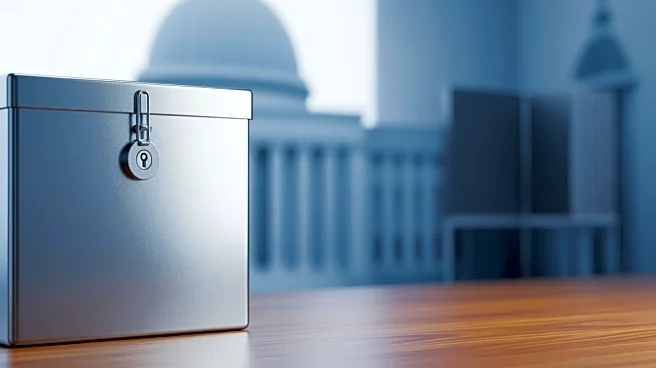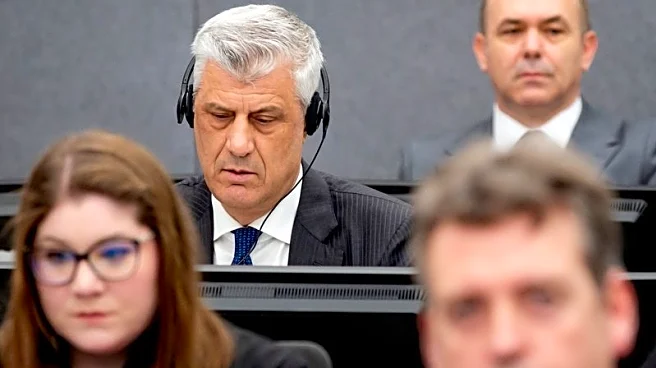What is the story about?
What's Happening?
The United Arab Emirates has become a significant player in the Bitcoin mining and treasury landscape, holding approximately $700 million in mined Bitcoin. The UAE government, through Citadel Mining, owns around 6,300 Bitcoin, making it the fourth-largest government Bitcoin holder globally, behind the United States, China, and the United Kingdom. Unlike other nations that have accumulated Bitcoin through asset seizures, the UAE's reserves come from direct mining efforts. Citadel Mining collaborates with Phoenix Group, a leading mining and blockchain infrastructure company, to support these operations. The UAE's strategy to diversify its economy through digital asset innovation is reflected in the construction of a Bitcoin mining facility in Abu Dhabi.
Why It's Important?
The UAE's approach to Bitcoin mining and treasury reflects its broader ambitions to solidify its position in the global digital asset ecosystem. This strategy enhances the country's financial resilience and underscores its commitment to embracing blockchain technology. By focusing on mining rather than market purchases, the UAE distinguishes itself from other nations like El Salvador, which has adopted Bitcoin as legal tender. The UAE's mining-driven Bitcoin reserves are expected to attract attention from other Middle Eastern states considering similar strategies, further cementing the region's role in the global digital asset landscape.
What's Next?
The UAE's strategic initiatives in Bitcoin mining are likely to influence other Middle Eastern countries to adopt similar strategies, potentially reshaping the region's digital asset landscape. As the UAE continues to expand its Bitcoin reserves, it may further enhance its financial resilience and influence in the global digital economy. Additionally, the ongoing volatility in Bitcoin's price, influenced by market dynamics and onchain activity, will continue to be closely monitored by traders and analysts.
Beyond the Headlines
The UAE's focus on Bitcoin mining rather than market purchases highlights a unique approach to digital asset accumulation, which could have long-term implications for how countries manage their sovereign digital asset reserves. This strategy may lead to increased regional collaboration in blockchain technology and digital asset management, potentially driving innovation and economic diversification in the Middle East.

















